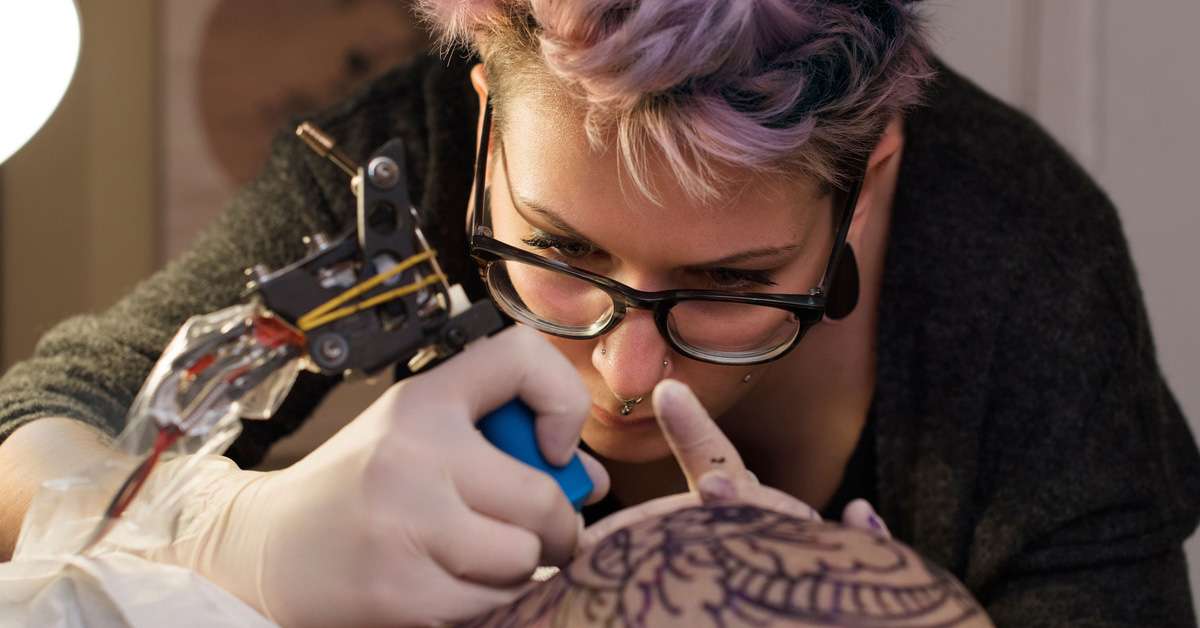Can you get a tattoo as a Vegan Everything You Need to Know

The good news is that you can actually get a completely plant-based tattoo. However, to predict this, one must be aware of the various parts of the process that may not be herbivorous. What points should vegetarians pay attention to?
ink
The first thing vegans should worry about is the tattoo ink.
Gelatin is used as an adhesive and is the most common animal-based ingredient in tattoo inks. Some inks use shellac instead.
Charcoal bones are used in some ink brands to give them darker pigments.
Some inks also contain glycerin, which is used to stabilize the ink and keep it smooth. Glycerin is a tricky ingredient because it can be made from soy or palm oil (although some vegans avoid the latter) or synthetics, but it can also be made from cow tallow. Since the source of glycerin is rarely listed on any product, it is best to avoid it.
Unfortunately, as often happens, some followers choose to go vegan for the sake of fashion. They are today, not tomorrow. Let's find out what vegan tattoos are and how they differ from regular tattoos. I used to think that the difference was only in substance. which cause allergies and worse problems. But then the protection of animals came to my mind in time: plant materials replace the carbon-based ink from animal bones and glycerin. Which is generally tempting for those who consider themselves animal rights activists?
Vegetarians went beyond plant-based inks. In addition to the ink, all other supplies must not have been made from animals: healing ointments, petroleum jelly, soap or transfer gels (transferring the tattoo design to your skin). It should be considered and purchased correctly, otherwise the tattoo work is not correct, it is not vegan.
So if you've been into tattoos for a long time, you've probably been told more than once that you're not vegan. However, we've all seen vegans with sleeve tattoos or the V symbol. Do they really follow their principles for meaningful vegan tattoos, or
tattoo ink
The first thing vegans should worry about is the tattoo ink. Gelatin is used as an adhesive in tattoo ink and is the most common animal-based ingredient in tattoo inks. Some inks use oysters instead.
Bone carbon is used in some brands of ink to give them a darker pigment.
Some inks also contain glycerin, which is used to stabilize the ink and ensure smoothness. Glycerin is a tricky ingredient because it can be made from soybean oil or palm oil (although some vegetarians avoid the latter), or it's synthetic, but it can also be made from beef fat. Since the source of glycerin is rarely indicated on any product, it is safer for a vegan to avoid it altogether.
Stencil paper
This surprises many people, even if they are aware of the various animal products that are found in most tattoo inks.
Stencil paper or transfer paper that artists use to draw tattoos before inking can contain lanolin (fat from sheep and other woolly animals).
Lanolin is a common ingredient in skin care products, so keep it in mind when shopping for creams and lotions to care for your next tattoo.
Other ingredients to check out include beeswax, COD liver oil, and shark liver oil.
While many tattoo studios insist on purchasing special creams that may contain many unacceptable ingredients, there are many natural options as well. Some companies are proud to sell herbal tattoo supplies, 100% safe for your health.
Razor lubricant tape
If your tattoo artist shaves the area they are tattooing, they will most likely use a disposable razor, and some disposable razors have a lubricating strip.
Most people don't think about what this bar is made of, but vegetarians should know that it's probably made from glycerin, and as we saw above, glycerin can be made from cow fat.
How to make sure a vegan tattoo is done right
So, now you know that you can be involved with animal products at every step of the process, from shaving to tattooing to the aftercare products used at the end of the process. However, this does not mean that it is impossible to get a tattoo for vegetarians.
Here are some things you can do to get animal cruelty free tattoos.
Contact the tattoo parlor and ask about the vegan tattoo option
Most tattoo parlors are aware of the products they use and often have other options if they have clients who are allergic to or otherwise avoid certain ingredients. They will also be able to recommend the right products to use during the healing process.
So call ahead and tell them you're vegan and ask about your options. If they can't accept you, chances are they can give you information on finding someone who can help.
برای نمایش آواتار خود در این وبلاگ در سایت Gravatar.com ثبت نام کنید. (راهنما)






















































ایمیل شما بعد از ثبت نمایش داده نخواهد شد